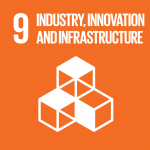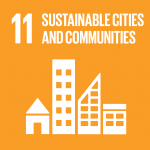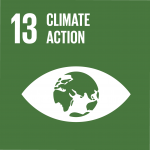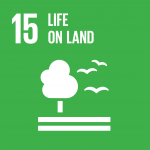Sierra Leone prepares a National Adaptation Plan to achieve resilience across all sectors

Climate change has adversely affected the environment, agriculture, food security and livelihoods of whole communities in Sierra Leone. Sierra Leone faces a number of environmental stressors across various sectors, such as land degradation, deforestation, loss of biological diversity, pollution of fresh water resources and coastal area degradation. The country has launched a National Adaptation Plan to not only protect its vulnerable sectors today, but to protect them tomorrow and beyond.
Freetown, Sierra Leone – Sierra Leone began the preparation of its very first National Adaptation Plan (Initial NAP) with an inception workshop that brought together representatives from priority sectors for their support, input and to emphasize the importance of collaborative planning for the successful design and implementation of this Initial NAP. This effort is part of the NAP process, which will ensure Sierra Leone integrates climate change adaptation into medium and long-term national planning and financing to build better resilience towards environmental stressors that are exacerbated from a changing climate.
Mainstreaming approaches in Sierra Leone
Sierra Leone has taken a whole-of-government approach to its climate change adaptation work. The country is working toward creating linkages across all levels of government and between sectors to enhance collaborative planning and joint decision-making in order to guide its efforts to mainstream adaptation. One of the ways Sierra Leone plans to approach mainstreaming their NAP will be through integrating climate adaptation considerations into the 1 million trees project. This activity will be support by the UNDP.
Priority sectors
During the Initial NAP inception workshop, stakeholders identified the priority sectors to be considered, including agriculture and food security, water resources and energy, coastal zone management (including fisheries, coastal ecosystems etc), infrastructure (including water and sanitation, transportation etc.), environment (including tourism, land, mineral resources, forestry, etc), and disaster management. Theses sectors cover all relevant sub-sectors that were also identified in Sierra Leone’s NAPA, NAP framework and in the adaptation components of its Nationally Determined Contribution (NDC).
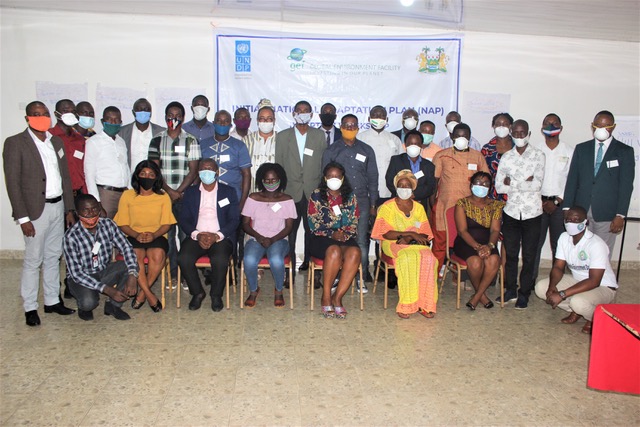 Sierra Leone’s inception workshop hosted a number of proposed ideas for the Initial NAP, which included enhancing resilience across value chains and mainstreaming climate change adaptation in land reforms. The goal was to raise stakeholder awareness across sectors and how they are interlinked under the effects of climate change, as well as safeguard the wealth and health of the country’s natural resources. Sierra Leone’s Initial NAP will further outlined specific goals to build resilience in each sector.
Sierra Leone’s inception workshop hosted a number of proposed ideas for the Initial NAP, which included enhancing resilience across value chains and mainstreaming climate change adaptation in land reforms. The goal was to raise stakeholder awareness across sectors and how they are interlinked under the effects of climate change, as well as safeguard the wealth and health of the country’s natural resources. Sierra Leone’s Initial NAP will further outlined specific goals to build resilience in each sector.
Build Resilience of Coastal Zones
Often times, climate change has a domino effect that cycles through multiple sectors. Flooding and heavy storms have damaged coastal infrastructures and caused coastal erosion, which in turn has impacted tourism. With the lack of coastal zone management, climate change has impacted the livelihoods and the food security of fisherfolk and coastal communities.
To better adapt coastal zones to the impacts of climate change, the Initial NAP will contribute in outlining better management of coastal and fisheries resources through the promotion of non-destructive fishing techniques, and thus build resilience of Sierra Leone’s marine ecosystems. To combat the destructive impacts of flooding, Sierra Leone will delineate flood and erosion prone areas, while improving the quality of topographic data for its coastal zone areas and in turn, make the tourism sector and local communities more resilient in the future.
The Vision of the NAP
The NAP process is aligned with the vision for adaptation in Sierra Leone, which includes increasing resilience capacity at the local level and supporting an integrated approach to climate change adaptation programming and policymaking in the country. The sectors in Sierra Leone will work to harmonize climate-relevant policies and regulations while improving coordination and cross-linkages between the sectors. Sierra Leone is working closely with the GEF-funded National Adaptation Plan Global Support Programme (NAP-GSP) - a joint programme implemented by UNDP and UNEP - to formulate the Initial NAP.
Photo credit: UNDP/Sulaiman Jalloh
